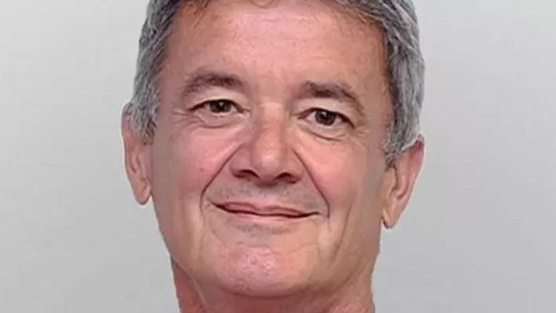Surgeon struck off after patients left in agony

Tony Dixon used artificial mesh to treat hundreds of bowel problems
- Published
A surgeon who performed unnecessary bowel operations using artificial mesh on more than 200 patients - leaving dozens in agony - has been struck off.
In two separate tribunals, Tony Dixon was found to have performed operations on five patients without obtaining or documenting informed consent and that one of these procedures was not clinically indicated and that he failed to provide post operative care.
Mr Dixon denied the allegations at the two tribunals, in 2024 and this year.
The Medical Practitioners Tribunal Service ordered for Dixon to be removed from the medical register. The tribunal report said he "demonstrated a persistent lack of insight into the seriousness of his actions".
This was the case "not only for patients and colleagues, but also for public confidence in the medical profession", it said.
Mr Dixon, a fully registered doctor of 41 years, was also found to have dishonestly created patient records long after he was involved in their care.
Doctor falsified mesh notes, medical hearing finds
- Published22 July
Suspended surgeon harmed hundreds of women
- Published18 July 2024
Tribunal rules after surgeon left women in agony
- Published2 July 2024
A former patient of Dixon, who was found to have had an unnecessary operation but wishes to remain anonymous, said they were "delighted" with the outcome.
"It's been just such a long time, he's harmed so many people.
"He shouldn't be allowed to do it to anyone else, so being struck off is amazing.
"It should have happened a long time ago. To get that result is brilliant."
The decision follows an investigation by the BBC and a review by Southmead Hospital and Spire Hospital, which found more than 200 patients were harmed after Dixon operated on them unnecessarily.
Southmead Hospital's investigation, in 2023, found non-surgical treatments should have been offered instead.
The BBC first revealed allegations made against Dixon in 2017, when many women complained of severe pain following their operations.
He used a technique known as mesh rectopexy to treat bowel problems.
Falsified medical records
The tribunal received testimonials that "spoke very highly" of Dixon, including from numerous former patients who said how he helped them, as well as being described as "extremely well thought of by his peers and a leading light".
However, the tribunal found he had "not taken any steps to remediate his serious misconduct".
The allegations ranged from 2007 to 2017. He was suspended by the tribunal service last year.
The General Medical Council, which brought the case against Dixon to the tribunal service, said the falsified medical records were "created to purposefully mislead the reader about aspects that [he] knew to be of particular concern in respect of his conduct".
Despite Dixon not "obtaining any financial gain from his dishonesty", the tribunal report said, he "stood to gain personally by seeking to protect his professional reputation".
"In doing so, [he] placed his own interests above those of his patients, prioritising self-protection over his duty to uphold public trust in the profession and maintain proper professional standards and conduct," the report said.
Get in touch
Tell us which stories we should cover in Bristol
Follow BBC Bristol on Facebook, external, X, external and Instagram, external. Send your story ideas to us on email or via WhatsApp on 0800 313 4630.